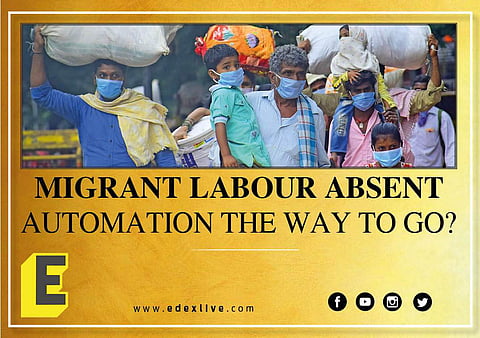

The Coronavirus pandemic has affected 4,12,955 people in India and taken the lives of 13,292 citizens till now. The economy has also been devastated by the worldwide crisis. One of the most affected is the hospitality sector — people have not been travelling, eating out or going on vacations for almost four months now. Industries which are linked to this sector are also suffering — food processing being one of them.
The migrant workers who were the lifeline of these factories have gone back home and demand for processed food is at an all-time low. The Food Industry Capacity and Skill Initiative (FICSI) has come up with two courses to help retailers and Micro and Small Food Processing Enterprises practice sanitised processes while manufacturing or handling processed food. We spoke to FICSI's CEO Sunil Marwah to find out what the food industry is going through, the roadmap to revival and what these courses are all about. FICSI is supported by the National Skill Development Corporation (NSDC) which conducts studies and also assess and certifies trainees on the curriculum aligned to National Occupational Standards.
Here's an excerpt from the conversation:
How is the food processing industry dealing with the economic standstill?
There are three issues that have come up — a lot of the labour force has left, the hospitality industry, that takes in 30 per cent of the produce, has shrunk and the receivables from different channels had also slowed down. But on the other hand, people sitting at home are eating more processed food. It might not be as affected as some other sectors but the challenges are there.
Even though the hotels are still shut, the restaurants and cafes have restarted business. Does this mean you are also getting back on track?
Not at all. These sectors always worked on a longer credit basis and the funds took some time to come in. There are old outstanding amounts that are yet to be recovered. As their sector has been affected their financial management has also gone for a toss. Even though takeaways have started, there are no big marriages or cultural programmes. It has affected them directly but the food processing industry has also been affected.
One of the top issues you mentioned was that the labourers have left. When do you think they will come back? Is it possible to incentivise their return or find a way around?
I don't think the labourers will come back in the near future. The challenge now is to skill the locals to join the labour force. What I have been encouraging industry members to do is increase women participation. Tamil Nadu will be the most affected due to the lack of labourers — 60 per cent of its labour force has left. It's a real challenge. It will take time. People will not come back until there is some semblance of normalcy.
Since the labour force has dwindled considerably, that will increase the wage rates. Will that affect the prices now?
I don't think it will increase prices right now. The demand is also low so it somewhat matches the low supply. When the demand increases the prices might be affected.
With the industry changing rapidly will the types of jobs also change?
I believe so. This sector employs about 18 to 20 lakh people in the formal segment out of which the engineers constitute about 5 per cent. They will have to get trained in automation. We are trying to adopt automated production lines like in Singapore where the labour shortage is common. We have to include automation as a much detailed subject in BTech Food Processing or hire people who have more knowledge about automation. India already has started on this path and there are examples across the country where big factories are being run by very few people because everything is automated. In India, the choice was between investing in capital or labour and labour was the cheaper one. So the MSMEs were leaning towards labour. Now, with this change happening, labour is the answer.
You have started two new courses for retailers and micro-businesses. How will they help?
Even though online shopping is quite prevalent, the neighbourhood kirana stores are still as prominent as before. Like you would not normally order soft drinks or chewing gum. These are impulse buys. We also do not want the market to be governed by a few big players like in the USA or the UK — it drives down the margins. That is one reason we want to promote the kirana shop owners or retailers. One of the courses is for them — to teach them what are the safety practices they should follow in their shop and while handling food items. They will be given a certificate after the course that they can display and will also be provided with a set of guidelines to follow. The other course is for micro-business owners — where the daily works together and has five to six people. They mostly make pickles and processed food. The course is a short but informative one about how they too can follow safe practices during COVID-19. We are also trying to reskill the labourers who have gone back home and urging them to start a small business like making processed food — pickles, jams, papad etc.
